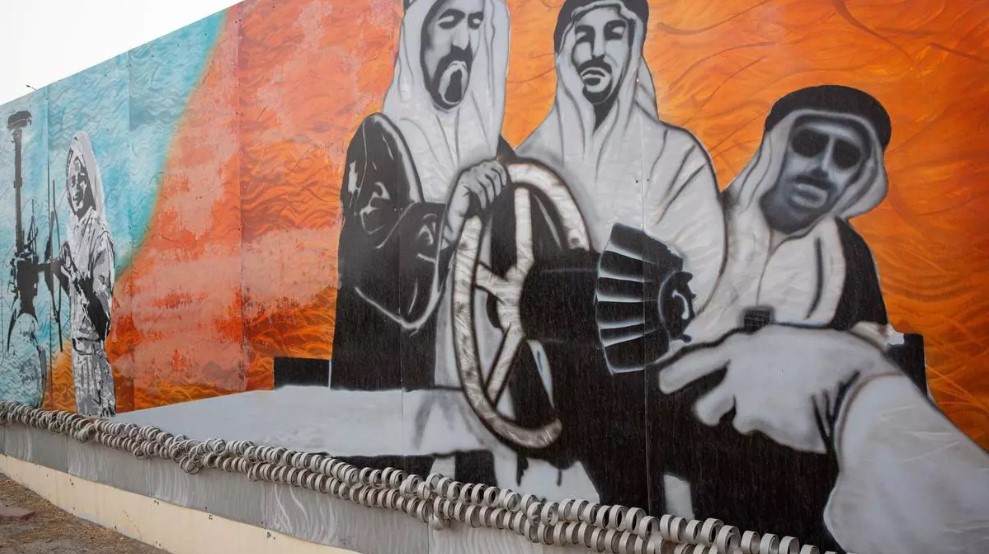Kuwait is a laboratory for environmental activism in the land of black gold, but with reservations: the Persian Gulf abhors Greta Thunberg’s style, preferring consensus.
Sebastian Castelier – elDiario.es
With the World Climate Summit coming to Dubai, the heart of the region that symbolises the oil era, the elites of the petro-monarchies are taking the opportunity to make speeches of good intentions. Environmental activists will have very few opportunities to express their ideas to the powerful. The United Arab Emirates, like most Gulf countries, prohibits any unauthorised demonstrations, and activists are invited to ‘peacefully assemble’ in designated areas.
This behaviour is a reflection of the positioning of the countries in the region towards activism: very strictly framed in a context decided by local authorities to ensure that the message of environmental protection does not go beyond the strategic objectives. For example, promoting recycling to avoid debate about a world moving away from fossil fuel-based plastics. In this authoritarian region, Kuwait is an exception. As a semi-democratic regime, the country allows a little more leeway for the environmental movement to organise and take shape in a real way, freer to defend the causes the movement chooses itself, without orders.
“Solutions without scaremongering”
In the face of unwavering public support for oil, environmentally sensitive Kuwaitis struggle to make themselves heard, in a socio-cultural context that makes Greta Thunberg’s own colourful activism inaudible. “We have to make sure that our activism speaks to local audiences. Kuwaitis want solutions, not scaremongering,” explains Jassim Al Awadhi, founder of Kuwait Commute.
We have to make sure that our activism speaks to local audiences. Kuwaitis want solutions, not scaremongering
Jassim Al Awadhi – Founder of Kuwait Commute
This initiative advocates alternatives to a car fleet estimated at 445 cars per 1,000 inhabitants, despite the fact that most foreign workers, who make up 70 per cent of the population, cannot drive. The metro project, which has been discussed since the 2000s, has never been implemented, and Kuwait’s 1.5 million people shy away from the country’s bus network, the only alternative to a car-centric system.
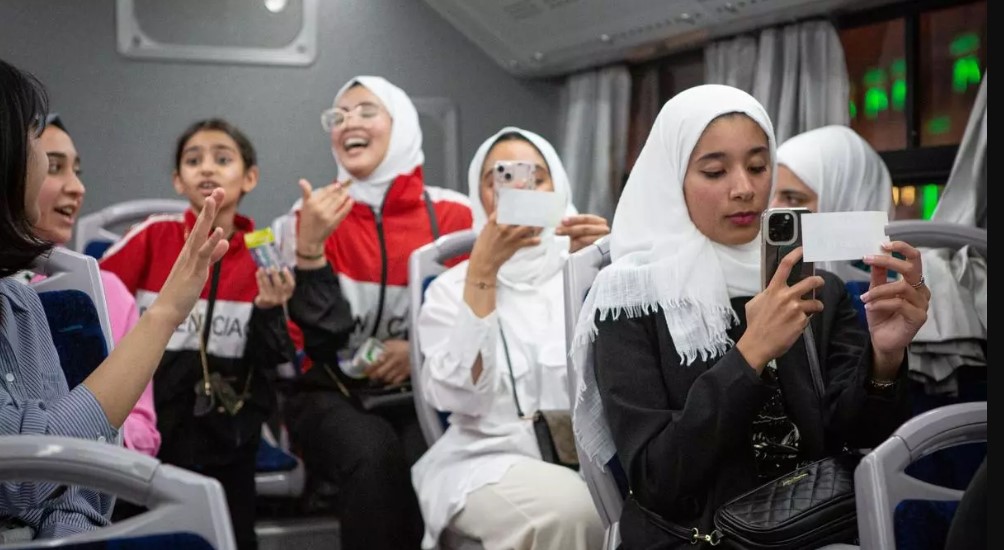
Jassim Al Awadhi refuses to apportion blame and uses education as a weapon to destroy stereotypes. “It was my first time on a bus in Kuwait. Until today I was afraid of them: the lighting seemed dim, there was no air conditioning and they were not clean,” confesses Raghad AlEnezi, aged 23, after an introductory workshop on bus use co-organised by Jassim Al Awadhi to highlight the benefits of the country’s bus network. On Al-Bidea beach, some 30 young Kuwaitis clean up the area for the third time this year.
“Many Kuwaitis, especially those who have not studied abroad, think that someone will clean this up after them”, says Ali Mohammad, aged 25. “For them, nature is a green forest, not our ecosystem”, he laments. But Abdulrahman Ali, aged 27, a member of the Trash Hero collective, is hopeful: “We will eliminate people’s bad habits, one step at a time. Change doesn’t happen overnight”.
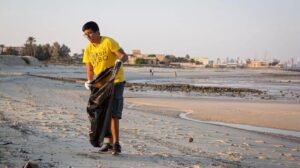
When Abdulrahman Ali mentions the role of the petrochemical industry in the tsunami of plastics flooding the Emirate, he does so with a nervous laugh. Nearly 93 per cent of the Kuwaiti government’s revenue comes from the oil industry and a large proportion of the country’s youth can barely project themselves beyond the age of oil and fossil fuels.
“The Kuwaiti children who visit us say they want oil exports to continue forever. Their only concern is whether one day they will run out and whether we can have more oil”, explains Rawan Al Jabir, a guide at the permanent exhibition organised by the state-owned Kuwait Oil Company, which operates the oil wells.
The Kuwaiti children who visit us say they want oil exports to continue forever. Their only concern is whether one day they will run out and whether we can have more oil
Rawan Al Jabir – Guide at an exhibition organised by Kuwait’s state-owned oil company
This company aims to tell the story of black gold to the public, also to young people during their school outings. As elsewhere, the truth comes out of the mouths of children.
Forcing “some debates”
In the Kuwaiti parliament, the only legislative body in the Gulf region capable of influencing public policy, the environmental issue is represented by Hamad Al Matar, head of the committee on the subject. “The government must make protection against pollution of the sea, land and air a top priority. It is up to me to force it to do so”, he said. While these critical statements may be more or less vocal, in reality they leave voters indifferent.
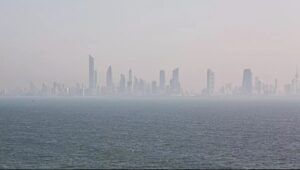
“Nobody teaches our young people how to fight climate change, or what they can really do to protect the environment […] The result is a lack of interest in this problem”, he laments. An analysis shared by Yagoub Yousif Al-Kandari, head of the Public Opinion Studies department at Kuwait University, who adds that “many Kuwaitis don’t know anything about climate change”.
The situation exasperates Samia Alduaij, co-founder of Reefs&Beyond, an initiative that aims to promote more sustainable approaches to consumption. “We haven’t reached a critical mass that feels appealed, committed. I’m about to go crazy, it’s frustrating”, she exclaims, referring to the lack of interest in renewable energy, which in 2022 accounted for 0.5% of the country’s electricity capacity.
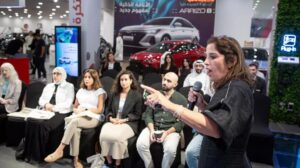
However, Reem Alawadhi refuses to give up. This environmental activist, turned Kuwait University professor, confesses: “Some students go home and talk to their families and friends. That way, at least, some discussions start to take place”. This is the focus of activists in the region: to educate in order to better deconstruct the rhetoric of companies like Kuwait’s oil company.
This post is available in: English Español

